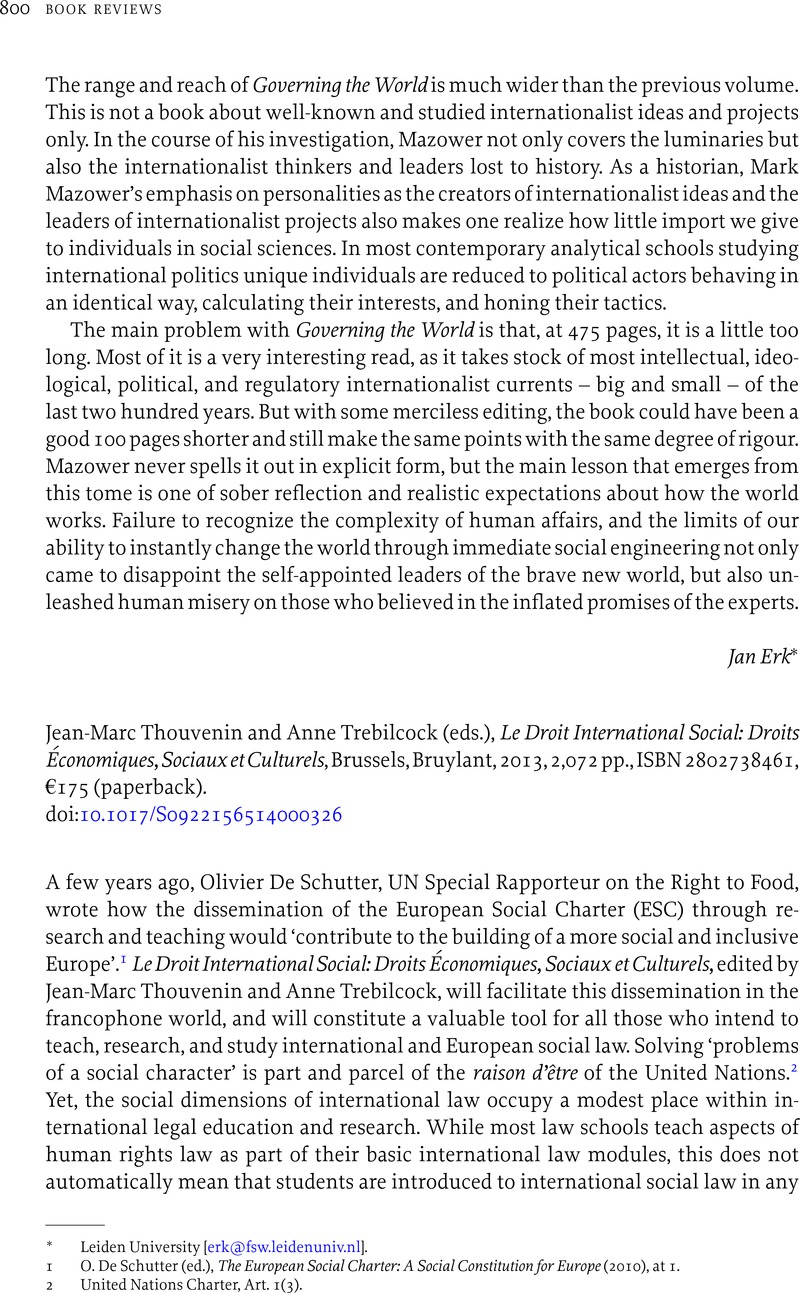No CrossRef data available.
Published online by Cambridge University Press: 24 July 2014

1 O. De Schutter (ed.), The European Social Charter: A Social Constitution for Europe (2010), at 1.
2 United Nations Charter, Art. 1(3).
3 This is also the approach of a statute book that recently appeared on the French market – published by another publisher within the Belgian Groupe De Boeck: Achim Seifert, Code de Droit Social Européen et International, Brussels, Larcier, 2012. An innovative aspect of the Larcier Code is the prominent place allocated to instruments that attempt to regulate the behaviour of multinational enterprises.
4 ‘Also called second generations rights, social rights are “claims on the state”. (. . .) Indeed, the perspective is different from the one for civil and political rights: the individual is placed in the centre of a community. [He or she] is no longer seen as a single entity but as a component of a whole in which the individual has rights related to his or her material condition and in his [or her] relationship with society.’ (p. 66) (Translation by the author).
5 See, e.g., Mubangizi, J., ‘Towards a New Approach to the Classification of Human Rights with Specific Reference to the African Context’, (2004) 4 African Human Rights Law Journal 93Google Scholar, at 93, 97.